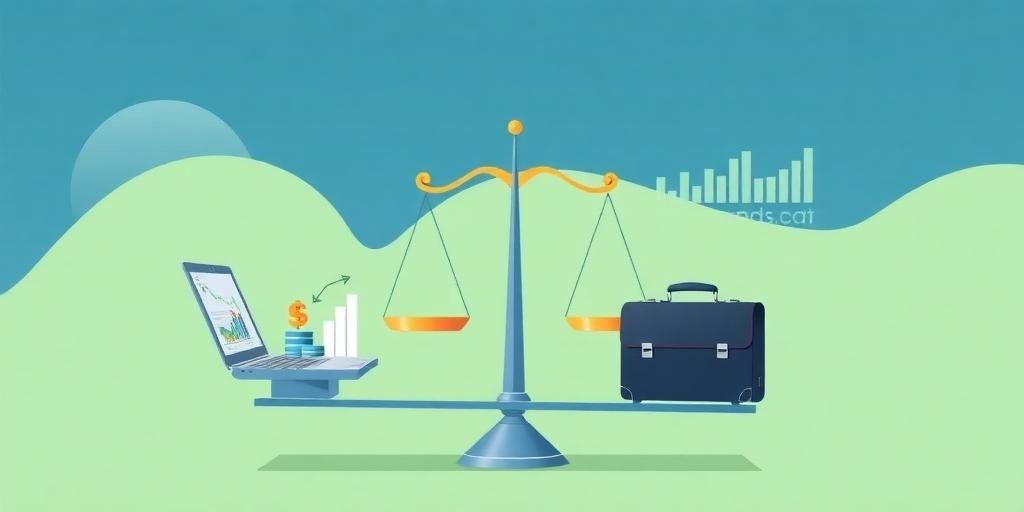Is Real Estate Still a Viable Investment in 2025?
The real estate market is constantly evolving, influenced by economic shifts, demographic trends, and technological advancements. As we approach 2025, investors are keenly evaluating the potential of real estate as a reliable investment vehicle. This analysis examines key factors that will shape the real estate landscape and provides insights into its attractiveness as an investment.
Current Market Dynamics
Before projecting into 2025, it’s crucial to understand the present state of the real estate market. Recent trends include:
- Rising Interest Rates: Central banks globally have been increasing interest rates to combat inflation. This directly impacts mortgage rates, making property purchases more expensive.
- Inflationary Pressures: High inflation erodes purchasing power, affecting both affordability and investment returns in real estate.
- Supply Chain Disruptions: Ongoing disruptions continue to impact construction timelines and costs, limiting the supply of new properties.
- Urban Exodus and Suburban Growth: The shift towards remote work has led to increased demand for larger homes in suburban and rural areas.
Factors Influencing Real Estate in 2025
Several key factors will determine the viability of real estate investments in 2025:
- Economic Growth: The overall health of the global economy will significantly impact real estate. A recession could lead to decreased demand and property values, while strong growth could fuel price appreciation.
- Demographic Changes: Millennial and Gen Z demographics are entering their prime home-buying years. Their preferences for urban living, sustainable housing, and technological integration will shape demand.
- Technological Advancements: Smart home technology, virtual property tours, and AI-driven property management are transforming the real estate industry. Investors must consider how technology can enhance property value and efficiency.
- Government Policies: Changes in tax laws, zoning regulations, and housing policies can significantly impact real estate investments. Monitoring these policies is essential for informed decision-making.
- Sustainability and Green Building: Growing awareness of climate change is driving demand for energy-efficient and sustainable properties. Investments in green building technologies can offer long-term value and appeal to environmentally conscious buyers.
Potential Investment Strategies for 2025
Given these factors, several investment strategies may prove fruitful in 2025:
- Residential Rentals: As homeownership becomes less affordable due to high interest rates, demand for rental properties is likely to increase. Investing in well-located residential rentals can provide steady income.
- Commercial Real Estate: The recovery of the commercial sector, particularly in urban centers, could offer opportunities. Focus on properties adaptable to changing work environments and technological needs.
- Real Estate Investment Trusts (REITs): REITs provide a liquid way to invest in real estate without direct property ownership. Diversification across different sectors and geographies can mitigate risk.
- Distressed Properties: Economic downturns can create opportunities to acquire distressed properties at discounted prices. However, this strategy requires careful due diligence and capital for renovations.
- Sustainable Developments: Investing in eco-friendly and energy-efficient properties aligns with long-term sustainability trends and can attract a growing segment of environmentally conscious tenants and buyers.
Risks and Considerations
Investing in real estate is not without risks. Potential challenges include:
- Market Volatility: Real estate markets can be unpredictable, influenced by economic shocks and unforeseen events.
- Liquidity Constraints: Real estate is a relatively illiquid asset. Selling properties can take time, and transaction costs can be significant.
- Management Responsibilities: Direct property ownership requires ongoing management, including tenant relations, maintenance, and repairs.
- Regulatory Changes: Changes in regulations can impact property values, rental income, and development opportunities.
Conclusion
Whether real estate remains a good investment in 2025 depends on a variety of factors, including economic conditions, demographic trends, technological advancements, and government policies. While risks exist, strategic investments in residential rentals, commercial properties, REITs, distressed properties, and sustainable developments can offer attractive returns. Investors must conduct thorough research, understand market dynamics, and adapt their strategies to navigate the evolving real estate landscape effectively. By staying informed and proactive, investors can position themselves to capitalize on the opportunities that real estate presents in 2025 and beyond.









